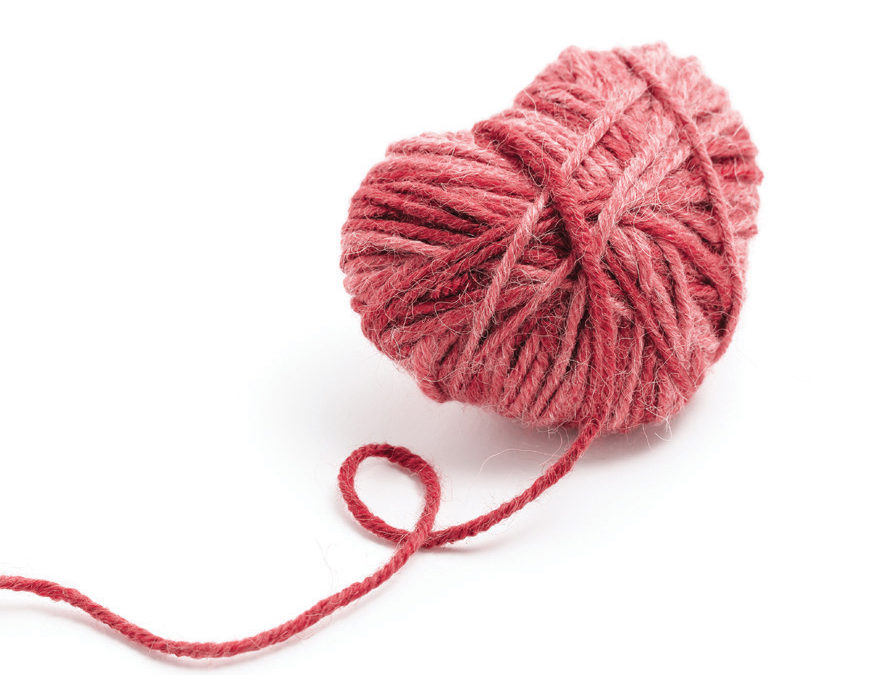by Susie Gamelin—
Mother’s Day shines on my calendar like the famous green light from The Great Gatsby—the one at which Jay Gatsby gazes longingly each night. I was born on Mother’s Day, during visiting hours. I’ve always thought that I was a thoughtful baby, arranging as I did to be born that day at that time. After all, my birth made my mom eligible for gifts that year.
I was also a World War II child, born right in the middle of that horrendous era. Four months after I was born, my dad went to the U.S. Navy office and enlisted. He had been a welder in a munitions plant, and as such had been protected from the draft. But the call to serve his country sent him to battle in the Pacific Ocean. It was a terrible time for him and for my mom. When he finished basic training, she followed him to San Francisco and stayed in a boarding house so that she could be close to Dad in the weeks before he shipped out. My grandma and grandpa cared for 6-month-old baby Susan while Mom was gone. More than a year later, my dad’s letters home stopped abruptly. Mom was a wreck. The mailman crossed the street when he got close to our home. He couldn’t face my mom’s tears when there was nothing for her. The letters started up again after the Battle of Iwo Jima.
Years later, when I was leaving home for college, my mother wrote me a letter. In it, she poured out her heart, explaining how guilty she felt about not being able to be truly present for me during my first two and a half years of life. I found that letter during a recent move and read it again, weeping over her account of trying to mother me during the years when her heart was bound up in the question of whether dad was alive. In retrospect she felt so guilty because her war-torn heart hadn’t been with me.
Guilty. It’s a word that plucks the mom guilt string in my own heart. That string will vibrate until I take a cold shower or watch a movie about a dysfunctional family where much worse things happen than in mine. If that guilt string is still vibrating when I manage to go to sleep, it’ll annoy me into being wide awake at 3 a.m., when the mom things I feel guilty about will loom as large as the shadows on my wall from the bathroom light. They’ll get distorted in ways that disappear when the sun rises.
Perhaps you recognize this syndrome, if you, too, are a parent. Is your “mom guilt” list like mine? My list is nothing like the one that left my mother guilt-ridden. My list includes forgetting to get a daughter the white dress she needed for an awards ceremony, missing a son’s performance as Jesus in Godspell, not noticing a daughter’s obvious need for a “training bra,” discounting a son’s loneliness in high school, failing to recognize the squished feelings of the middle child as well as a son’s distress after a break up, not noticing a daughter’s child-like efforts to help me, and so on. Guilt: the gif t that keeps on giving. I have four children. My guilt list is crazy long.
What can we do about the guilt that we mothering figures experience? That guilt is just as real and vibrant as the guilt we feel about the way we treated our parents or stepchildren or grandparents or sisters and brothers or extended family members. Yet mom guilt seems to be the worst kind of guilt for many of us. With the apostle Paul, I want to shout, “Wretched [person] that I am! Who will rescue me from this body of death?” Paul’s immediate answer? “Thanks be to God through Jesus Christ our Lord!” (Romans 7:24-25a). God’s forgiveness is stronger than our guilt.
I should stop right there. But I still hear the vibration of that plucked guilt string. So in the deepest parts of my heart, I bow down before Jesus and thank him for showing us that God loves and forgives us all—no matter who, no matter what, no matter why. I hear that good news. Because of it, I can forgive even people who have deeply hurt me and others.
What I’m still missing is forgiving myself. There are helpful “treatments” for people who feel guilty as they play the mom role in families. We can begin by turning down the volume of the twanging string that wakes us at night, so that we can hear instead the sweet music our children sing to us in visits, emails, texts and letters. How else do we turn that volume down? We need help. We can ask our pastors or deacons to pray the service of Individual Confession and Forgiveness with us (Evangelical Lutheran Worship, p. 243-244). We can seek spiritual directors, mutual conversation and consolation with friends, and psychotherapists, all of whom can help us forgive ourselves. If we have been abusive and/or violent people, we must seek immediate help. That kind of guilt cannot linger. It must be met head-on for the sake of those we’ve harmed and for those who love them. There are consequences even after forgiveness.
What have I done about my mom guilt list? I’ve told my children, one at a time, about it. “I hope you can forgive me,” I’ve said. Their responses range from “I don’t remember that,” to “I remember that, but it didn’t ruin my life!” Then they’ve said, “Now let me tell you what I feel guilty about in our relationship.” Forgiveness can abound between us. Just as I (mostly!) stopped blaming my mom for everything she was and did, my kids have (mostly!) stopped blaming me.
Jesus was blessed with family. He took good care of his mother, even though she, like any mother, musthave made some mistakes raising her first child. Did Jesus make mistakes when he was a child, like forgettingto tell his parents where he was for three days(Luke 2:41-51)? I guess. During his ministry, Jesus lifted children into his lap and blessed them as hisown (Mark 10:13-16). He assured his followers that we are all his sisters and brothers (Luke 8:19-21).He healed mothers and fathers, sons and daughters,neighbors and strangers, sinners and saints. From thecross, Jesus called out to Mary and the beloved disciplebeside her that they now were mother and son, so they would comfort and support one another (John 19:26- 27). He loved all of us so much that he refused to renounce the truth of God’s grace even to save his own life. Do we deserve his dying for us? Not so much. Are we loved and forgiven anyway? Absolutely! Can we grow in our discipleship as we follow Jesus, even to the point of forgiving ourselves? Yes. Mother’s Day glows on our calendars. Phone calls and texts, flowers andcards, hugs and day-late emails will delight all of us living out the mom role. We less-than-perfect people will love the celebrate on and those who celebrate with us. Thanks be to God.
The Rev. Susie Gamelin and her husband, Tim, live in Colorado. A retired ELCA pastor, she understands that her call is to wash the feet of those who are weary, confused, addicted and/or lonely.
This article is from the May 2020 issue of Gather magazine. To read more like it, subscribe to Gather.
Radical hospitality
I recently returned from a remote village in rural northwest Alaska. I’d been attending a regional...
When we know better, we do better
A while back, one of my children was struggling with some behaviors that I thought might indicate...
Let’s eat!
By Lisa A. Smith “Who knew that the hardest part of being an adult was figuring out what to cook...





